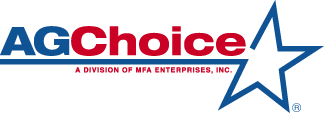| |
Financial Markets 04/23 15:47
NEW YORK (AP) -- U.S. stocks rallied for a second straight day Tuesday to
blunt the blow of what's been a rough April.
The S&P 500 climbed 1.2% and pulled further out of the hole created by a
six-day losing streak. The Dow Jones Industrial Average rose 263 points, or
0.7%, and the Nasdaq composite jumped 1.6%.
A weaker-than-expected report on U.S. business activity helped support the
market, which remains in an awkward phase. The hope on Wall Street is for the
economy to avoid a severe recession, but not to stay so hot that it keeps
upward pressure on inflation.
The preliminary report from S&P Global released Tuesday seemed to hit that
sweet spot. Treasury yields eased in the bond market, and stocks added to gains
immediately after its release.
A flood of earnings reports also dictated much of trading, highlighted by a
slew of companies that topped analysts' expectations.
GE Aerospace flew 8.3% higher after it raised its profit forecast for the
full year, in addition to beating expectations for first-quarter earnings.
Kimberly-Clark gained 5.5% after the maker of Huggies, Kleenex and Kotex
also raised its earnings forecast for the full year. General Motors revved up
by 4.4% after citing sales of pickup trucks and other higher-profit vehicles.
Danaher rose 7.2% after pointing to strength in its bioprocessing and molecular
diagnostics businesses.
They helped overshadow an 8.9% drop for Nucor after the steelmaker fell
short of forecasts for both profit and revenue.
MSCI, whose investment indexes guide much of the industry, fell 13.4% after
reporting weaker revenue growth than expected. Invesco sank 6.4% after falling
short of expectations for both earnings and revenue.
JetBlue Airways lost 18.8% despite topping expectations for the latest
quarter. Its forecasts for upcoming revenue came up short of what some analysts
expected, and it said competition in Latin America could weigh on its results.
All told, the S&P 500 rose 59.95 points to 5,070.55. The Dow gained 263.71
to 38,503.69, and the Nasdaq composite jumped 245.33 to 15,696.64.
The market's main event may have arrived after trading finished for the day.
Tesla reported its results for the first three months of the year, becoming the
first to do so among the "Magnificent Seven" stocks that accounted for most of
last year's gains for the S&P 500.
Expectations are high for each of the "Mag 7" after they rocketed to big
gains in 2023, and they'll need to at least match them to justify their prices.
Several had been leading the recent decline for the broader market, which
saw the S&P 500 fall as much as 5.5% in April. "This underscores the importance
of earnings in the next two weeks, which will be dominated by the Mag7, and the
risk that disappointing results may accelerate the sell-off," according to
Barclays strategists led by Stefano Pascale and Anshul Gupta.
With skeptics still calling the broad stock market too expensive, criticism
would ease only if companies were to produce higher profits or if interest
rates were to fall. The latter has been looking less likely.
Top officials at the Federal Reserve warned last week they may need to keep
interest rates high for a while in order to ensure inflation is heading down to
their 2% target. That was a big letdown for financial markets, dousing hopes
that had built after the Fed signaled earlier that three interest-rate cuts may
come this year.
Lower rates had appeared to be on the horizon after inflation cooled sharply
last year. But a string of reports this year showing inflation has remained
hotter than expected has raised worries about stalled progress.
That's why Tuesday's report suggesting a slowdown in growth for overall
business activity across the country was so welcomed. It could keep the door
open for the Fed to cut interest rates the one or two times that many traders
are currently forecasting.
The yield on the 10-year Treasury fell to 4.59% to relieve the pressure on
stocks broadly, particularly high-growth ones and those that pay high
dividends. The 10-year yield had been at 4.64% just before the report's release
and at 4.61% late Monday.
The two-year Treasury yield, which moves more on expectations for Fed
action, had a similar drop. It fell to 4.92% from 4.97% late Monday.
In stock markets abroad, indexes rose across much of Europe. They were mixed
earlier in Asia. Stocks jumped 1.9% in Hong Kong but fell 0.7% in Shanghai.
___
AP Business Writers Matt Ott and Zimo Zhong contributed.
---------
itemid:356d0f67a26add2df439558f0ae798b9
|
|






